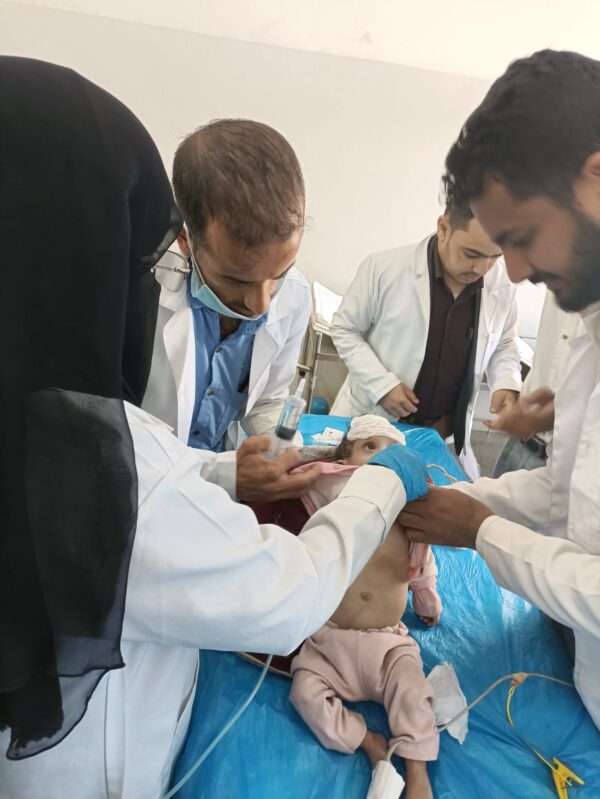TH
Nutrition in the health sector
The problem of malnutrition in Yemen is one of the most important reasons for the delay in development and development, and the impact of malnutrition increases in causing serious consequences such as the high mortality rate of children and mothers, and the negative impact on the physical and mental development of children, and thus affecting good performance and educational attainment, which leads to a deterioration in human forces and competencies and a decrease in their production, and all of this constitutes a major obstacle in the way of economic and social growth and development, because nutrition is the basis of health, and health is the basis of development.
Therefore, the health sector in the multi-sectoral implementation plan works to reduce malnutrition cases, by working on prevention and treatment of severe and moderate acute malnutrition for the most vulnerable groups, namely children under the age of five, pregnant and lactating mothers, as well as limiting the exacerbation of micronutrient deficiencies such as iodine, iron, folic acid, vitamin A and D deficiency.
By implementing specialized nutritional programs at the level of health facilities by opening outpatient clinics to treat cases of severe and moderate acute malnutrition without complications, and at the hospital level by opening therapeutic feeding centers for cases of severe acute malnutrition with complications (TFC) and at the community level by implementing a community health and nutrition volunteers program that raises nutritional and health awareness about balanced nutrition practices and encourages and protects breastfeeding through community health and nutrition volunteers.
The objectives of the health sector in the multisectoral nutrition plan
- Raising infant breastfeeding practices.
- Increasing the quality and quantity of nutrition services
- Raise health services in quantity and quality and provide them. The three objectives included 71 activities.




